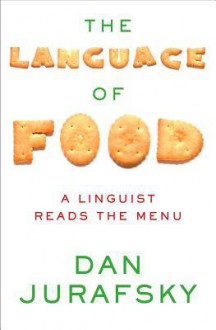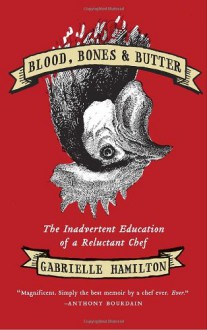

Beautiful and harrowing. I picked this novel up because it is frequently mentioned in broad surveys of food-focused literature, and indeed there are many important scenes that take place over meals as well as detailed descriptions of the never-ending domestic labor that Ginny and Rose undertake on the farm. But I hardly made note of these, because I was swept up in the minutiae of their family drama, neighborhood gossip, and domestic abuse.

I really enjoyed this collection of linked essays about the history and taxonomy of food words. In fact, I finished it over one weekend of travel--it was accessible and breezy enough to be read continuously on three-hour train rides.
Each essay examines either a grouping of words (salad, salsa, sauce, salt) or a genre of food writing (menus, reviews, etc.), although the essays are well-connected and refer back to one another. About half the analysis is linguistic and makes use of specially written software to produce a quantitative report of when and how certain words are used. The other half is historical, tracing the evolution of certain words as they travelled from country to country centuries ago. The latter is interesting, but the former is useful, and I think I'll be incorporating some of the book's linguistic observations (such as how the sound of words influences perception of meaning) into my own writing.

I'm not much into the memoir genre, least of all food memoirs, but this book hooked me in the first chapter about the author's semiferal childhood in a crumbling Pennsylvania mill with her stage designer father and French ballerina mother. As it went on, I appreciated the author's ruminations about feminism, being a mother and also a leading figure in a male-dominated profession, about the arcane world of advanced degrees in writing--but I kept reading for the glimmers of magic as the author forced a restaurant, a marriage, and a book into being through sheer force of will.